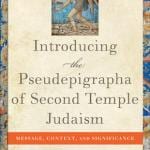Lee C. Camp
Scandalous Witness: A Little Political Manifesto for Christians
Grand Rapids, MI: Eerdmans, 2020.
Available at Eerdmans and Logos
Previously I’ve looked at Darrell Bock and Tremper Longman’s books on Christianity in politics, both are from what I would call the “principled conservatism” side of the political spectrum. In this book, Lee Camp offers a manifesto for Christian political engagement, and he is from the slightly more progressive neck of the woods. For Camp, Christian identity and convictions are in moral and political free-fall. Camp argues that Christianity in the USA has become a sad public joke because of “our failure to rightly understand what Christianity is.” Launching from that premise, Camp’s manifesto contains several propositions oriented towards renewed Christian political engagement, one that is “neither left nor right nor religious,” but aspires for a prophetic way of life patterned after Jesus of Nazareth. The most important part of this book is challenging what is Christian from what is cultural, what is Christian authenticity as opposed to American mythology.
I must say that the book has a gripping opening chapter. It commences with a quote from Thomas Merton that “For the revolutions of men change nothing. The only influence that can really upset the injustice and iniquity of men is the power that breathes in the Christian tradition.” Then there”s Camp’s own first words: “The faith of the Christian is the last great hope of earth.” For Camp, Christianity is bastardized when its coopted to either the left or the right. He notes Jesus faced certain temptation about politics, temptations to go the MAGA route, to become a religious reformer concerned only with spiritual things, or to reduce his work to social activism. Above all, Camp declares that Christianity is not a religion, it is a politic, by which he means”an all-encompassing manner of communal life that grapples with all the questions the classical art of politics has always asked: How do we live together? How do we deal with offenses? How do we deal with money? How do we deal with enemies and violence?”
Among his 15 propositions, the one’s I found the most interesting were “Christianity is neither a prostitute nor a chaplain,” “The United States is not the hope of the world,” and “Hostile Forces Have a Role in the Unfolding of History.”
Camp’s Propositions
Proposition 1: History Is Not One Damn Thing after Another
Proposition 2: The End of History Has Already Begun
Proposition 3: American Hope Is A Bastard
Proposition 4: Christianity Is Neither A Prostitute Nor A Chaplain
Proposition 5: The United States Is Not the Hope of the World
Proposition 6: The United States Was Not, Is Not, and Will Not Be a Christian Nation
Proposition 7: How Christian Values, and the Bible, Corrupt Christianity
Proposition 8: Every Empire Falls
Proposition 9: Christian Partisanship is Like a Fist-Fight on the Titanic
Proposition 10: Hostile Forces Have a Role in the Unfolding of History
Proposition 11. Christianity Is Not a Religion; Christianity Is a Politic
Proposition 12: Liberal Political Puissance Is Not the Goal
Proposition 13: Exemplary Political Witness Is the Goal
Proposition 14: Christianity Is Not Counter-Cultural
Propositions 15: Christian Engagement Must Always Be Ad Hoc
My biggest quibble with the book is that if Christianity is an “alternative politic” – as Camp defines it – then he’s basically arguing that Christianity is a type of civilization, a type of political culture, which, if put into effect, amounts to a new Christiandom of sorts, albeit one that is democractic and pluralistic rather than feudal and monarchial. It is a call to Christianize America, only with an authentic Christianity that is neither radically left nor ultra right. If you try to put this alternative politic into effect then, like it or not, you are Constantinizing to some degree or other. What happens if you bear witness to a socio-political vision and people get persuaded by it and put it into effect? Sooner or later you are Constantine.
Also, I know that Camp is writing an antidote for the American scene and its sad and pathetic performances of political Jesus religion, and I think it hits some great targets in that shooting game. But I wonder how meaningful, relevant, or true Camp’s manifesto is for, say, Christians in China, Thailand, Kuwait, Sweden, Egypt, or Bosnia. Now, to his credit, Camp denies that America is God’s special servant and he resists American’s political messianism, so he’s got a sane idea of where American fits into God’s plan vis-a-vis the other nations of the world. He knows the danger of “When the time had fully come, God sent America, born of Britain, to redeem those under British tyranny.” But Camp still kind of assumes a Christianized post-Christian society where political forces want Jesus’s endorsement even if the same political forces have no intention of actually obeying him. That is not true in most parts of the world where, in many cases, Christians are persecuted, marginalized, or irrelevant. Something like Epistle Diognetus 5 is how Christians relate to the state and majority culture in many other countries. Thus, if Camp’s manifesto is not capable of being applied to different socio-political contexts around the world, one must ask whether his prescription is itself a product of the Americanization of Christianity. In other words, is Camp merely offering another vision of Americanized Christianity to replace other politically bastardized versions of Americanized Christianity?
All in all, Camp has written a book of deep Christian conviction, elegantly written, neither partisan nor pandering to any side, and will certainly make one think more pointedly about Jesus, church, faith, in light of the UFC cage fight that is the American political scene. A terrific read!












